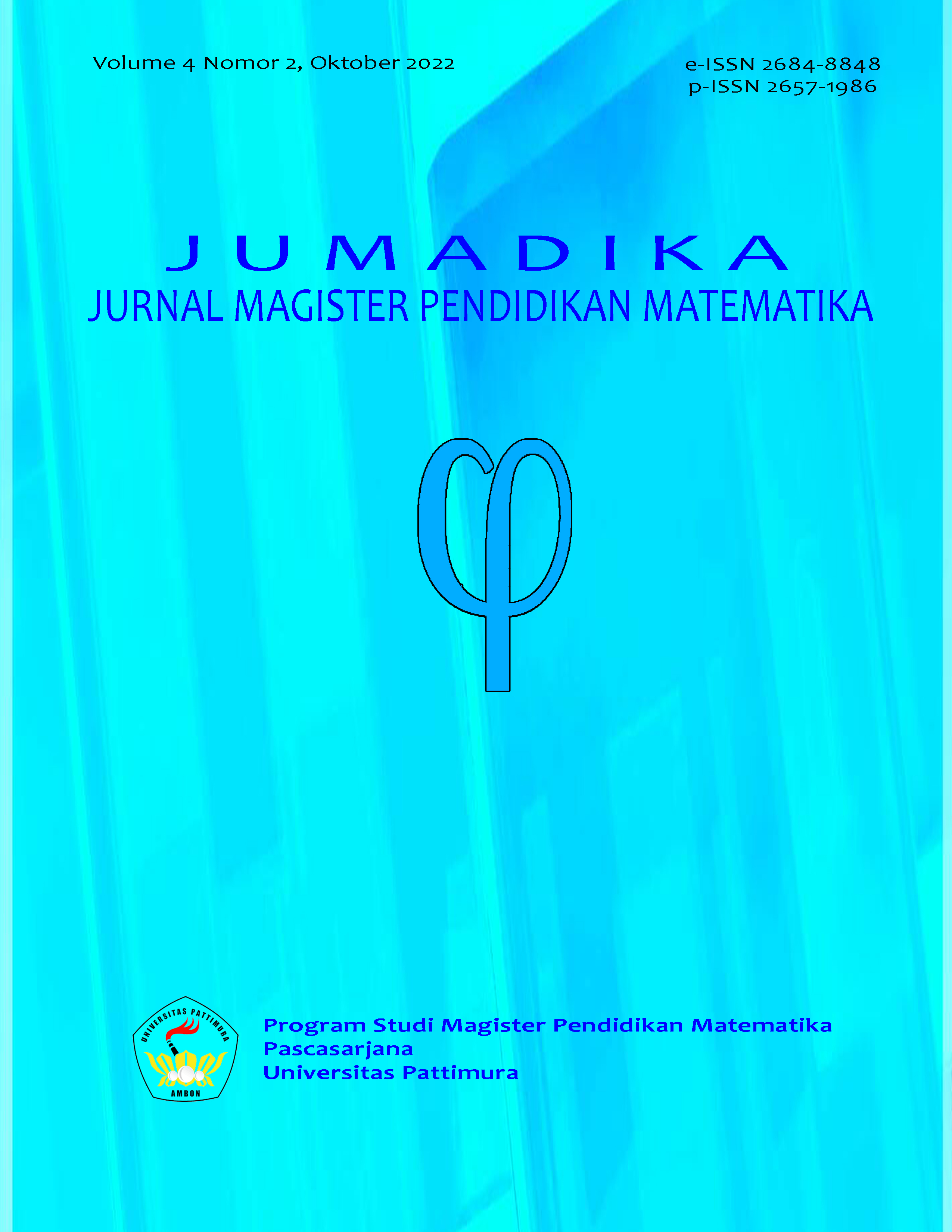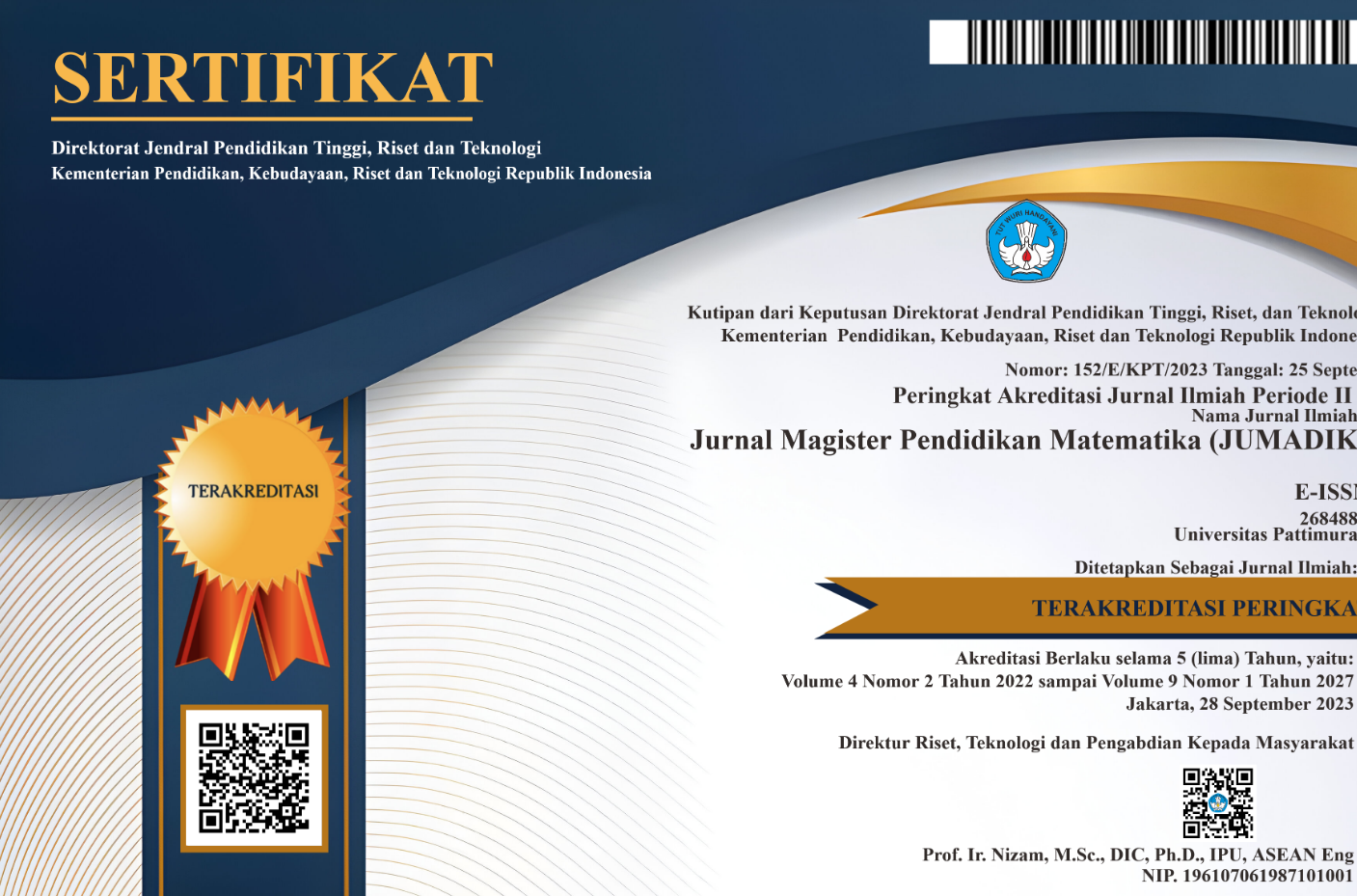ANALISIS KEMAMPUAN PEMECAHAN MASALAH MATEMATIS BERDASARKAN TEORI APOS DITINJAU DARI SELF EFFICACY SISWA
Abstract
This study aims to find out the ability to solve mathematical problems based on APOS theory when examined by a student's self efficacy. Studies are conducted in class X Accountability SMK Nurul Huda Baros Kabupaten Serang that has of 28 students. The research subjects were 6 students consisting of two students from each category of self-efficacy. The study uses a type of qualitative research with a descriptive method. Data collection techniques in this study used questionnaires, tests, and interviews that a questionnaire instrument in the form of statements about self efficacy and a test consisting of two question problems solving of quadratic equations. Studies have revealed that students with a high self efficacy has the ability to solve mathematical problems to the stage of the scheme, the student with moderate self efficacy has the ability to solve problems to the stage of objects, while the student with low self efficacy has the ability to solve problems only until the stage of action
Downloads
Copyright (c) 2022 Dewi Nadhila Ashri, Etika Khaerunnisa

This work is licensed under a Creative Commons Attribution-NonCommercial-ShareAlike 4.0 International License.
License and Copyright Agreement
In submitting the manuscript to the journal, the authors certify that:
- They are authorized by their co-authors to enter into these arrangements.
- The work described has not been formally published before, except in the form of an abstract or as part of a published lecture, review, thesis, or overlay journal. Please also carefully read Jurnal Magister Pendidikan Matematika (JUMADIKA) Posting Your Article Policy.
- That it is not under consideration for publication elsewhere,
- That its publication has been approved by all the author(s) and by the responsible authorities – tacitly or explicitly – of the institutes where the work has been carried out.
- They secure the right to reproduce any material that has already been published or copyrighted elsewhere.
- They agree to the following license and copyright agreement.
Copyright
Authors who publish with Jurnal Magister Pendidikan Matematika (JUMADIKA) agree to the following terms:
- Authors retain copyright and grant the journal right of first publication with the work simultaneously licensed under a Creative Commons Attribution-NonCommercial-ShareAlike 4.0 International License (http://creativecommons.org/licenses/by-nc-sa/4.0/) that allows others to share the work with an acknowledgment of the work's authorship and initial publication in this journal.
- Authors are able to enter into separate, additional contractual arrangements for the non-exclusive distribution of the journal's published version of the work (e.g., post it to an institutional repository or publish it in a book), with an acknowledgment of its initial publication in this journal.
- Authors are permitted and encouraged to post their work online (e.g., in institutional repositories or on their website) prior to and during the submission process, as it can lead to productive exchanges, as well as earlier and greater citation of published work.








